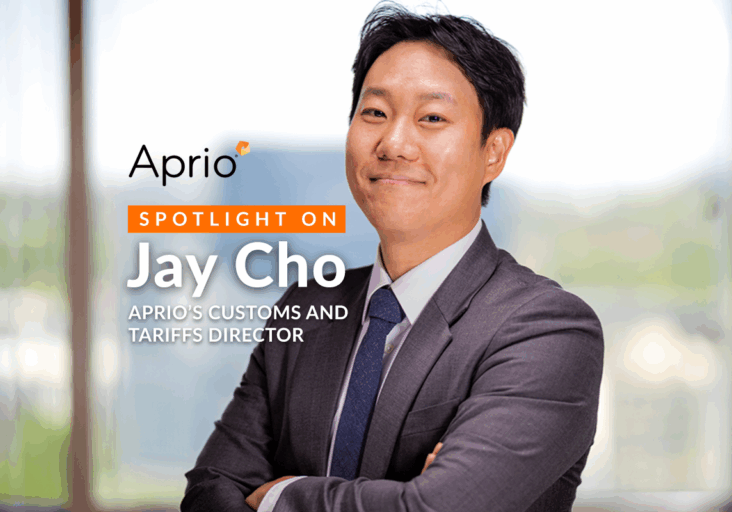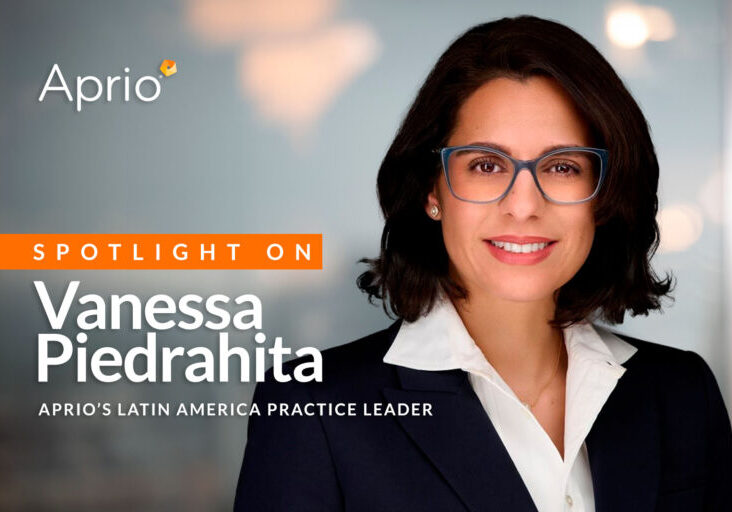Spotlight on Jae Kim: Aprio’s Korea Practice Leader
Table of Contents
- Summary
- Thanks for sitting down with us, Jae. To start, how long have you been working with Korean businesses? What is your specific area of focus?
- How would you describe your clients? Who would be a good fit for your services?
- Can you share with us an example of a client you helped with Aprio’s Korean Practice services? What was the result?
- Where should business owners contact you to learn more about our Korean Practice services and how Aprio can help them?
Summary: In the latest segment of Aprio’s International Spotlight series, we sit down with Jae Kim to discuss his background and experience, and how he uses his deep knowledge of the Korean and U.S. business landscapes to serve Korean multinational clients.
South Korea represents one of the world’s most dynamic economies, with companies increasingly looking to expand their operations in the United States. To successfully navigate the complexities of cross-border business, Korean companies need more than just technical advice. They need a team of advisors who truly understand the cultural nuances, language, and business practices that shape Korean commerce. When they have a trusted professional partner who can bridge both worlds, Korean companies can get a competitive edge in the U.S. and global marketplaces.
To unpack this topic further, we spoke with Jae Kim, the Korea Practice Leader and FDI (Foreign Direct Investment) Senior Manager within Aprio’s Assurance Services group, as well as a key member of the firm’s International Business Services team. Keep reading for an exclusive interview on Jae’s background, experience, and deep knowledge of the Korean and U.S. business landscapes.
Thanks for sitting down with us, Jae. To start, how long have you been working with Korean businesses? What is your specific area of focus?
I was born in Korea but grew up as an Expat family, having lived in Africa attending international school most of my childhood. I came to the United States to study global commerce when the Asian Financial Crisis triggered International Monetary Fund (IMF) to step-in and the Korean multinational that my family was part of went into a work-out situation. This global financial incident sparked my interest in global finance and economic development, and sprouted my dream growing up wanting to work for the IMF based in D.C. I attended Butler University, where I earned my Bachelor of Science in Business Administration. After that, I completed my Master of Science in Accounting at Indiana University’s Kelley School of Business. In college, I also participated in an international exchange program at the Chinese University of Hong Kong, which helped broaden my global perspective early in my career.
I have over 15 years of experience providing assurance and foreign direct investment (FDI) advisory services for clients across various industries, with a particular focus on international manufacturing, distribution, consumer products, energy, trade, and technology companies. Before joining Aprio, I worked with several Fortune 500 companies, including Deloitte, Roche, and Johnson & Johnson. Those experiences gave me valuable insight into how multinational corporations operate and connect.
But in practice, what sets me apart is my ability to serve as a true bridge between the Korean and U.S. business cultures and understanding the comprehensive FDI journey. I speak fluently in Korean and paired up with deep experience in cross-border financials, control environments and industry needs essential for helping Korean companies report accurate financials to their parent companies or investors. I specialize in advising Korean-speaking clients on business strategy when entering the U.S. market and helping them achieve success by connecting the bridge between U.S. and South Korea.

How would you describe your clients? Who would be a good fit for your services?
For the most part, I work closely with CEOs, CFOs, and managers of multinational companies and foreign-owned subsidiaries here in the U.S. My clients are typically Korean companies that are expanding into the U.S. market or establishing subsidiaries here, as well as U.S. companies looking to do business in Korea.
These businesses span a wide range of industries, but manufacturing, distribution, consumer products, technology, energy, and trade are the most well-represented. The commonality across all of these businesses is that they need a business advisor who understands both technical accounting and tax , as well as the cultural context that shapes how Korean business leaders make decisions and communicate with their teams.
Language is culture, therefore often important. In my experience, many Korean executives prefer to discuss complex financial and strategic matters in their native language, especially when they’re dealing with sensitive business decisions. Being able to conduct these conversations in Korean and English (bi-lingual) fluently helps build trust and make sure nothing is lost in translation.
“Aprio’s Korean Practice is a true teammate and consultant to our company. They are always thinking proactively and suggesting the right solutions for the challenges and opportunities we face. They are partners who help us coordinate incorporation, tax incentives, audit, HR, and finance system establishment seamlessly. Our experience with the firm has been fabulous.” — CFO, Lotte Aluminum Materials USA and Lotte Aluminum Co.
Can you share with us an example of a client you helped with Aprio’s Korean Practice services? What was the result?
I’ve had the privilege of working with various Korean multinational corporations on FDI projects, helping each client prepare for what comes next to be successful in the U.S. market.
One area where I provide significant impact is connecting clients from the site selection and economic development projects stage. My involvements in economic development networks and to help cross-border bridging for finalizing and building new business in the U.S. helps fuel the needed advisory in the FDI journey. I am able to connect multinational companies with their needed advisory for bridging cultural differences when it comes to decision-making support of a new project. Often, being bi-lingual and understanding both cultures enables insights for better control optimization, financial reporting and strategies that will make sure the FDI journey is done right from the first steps. I’ve also helped publicly traded Korean companies navigate J-SOX and K-SOX compliance requirements, making sure their U.S. subsidiaries meet both Japanese and Korean regulatory standards for internal controls. This is also particularly important for Korean companies with operations in multiple countries that need consistent, reliable financial reporting across their entire enterprise.
Furthermore, I help clients navigate decision-making support by review of tariff or costing analysis for U.S. subsidiaries and review accounting systems, so they are audit ready or help provide assurance services. In everything I do, my goal is to help Korean business leaders understand the U.S. regulatory environment and make informed decisions about how to assimilate doing business in the U.S. from their home country for the long-term success.
Beyond client work, I’m proud to be deeply involved in the Korean business community here in Atlanta. I serve as President and a board member of the Southeast U.S. Korean Chamber of Commerce and as Vice President of Community Relations for Ascend Leadership–Atlanta. I’m also a member of the Council of Korean Americans. These roles enable me to stay connected to the local Korean business community and help facilitate the connections that lead to successful partnerships.
Where should business owners contact you to learn more about our Korean Practice services and how Aprio can help them?
The best way to learn more and schedule a consultation with me is to check out Aprio’s Korean Practice page! We are here to help Korean businesses cross borders with confidence and provide the personalized, proactive service that empowers you to achieve your business goals.
Stay informed with Aprio.
Get industry news and leading insights delivered straight to your inbox.



